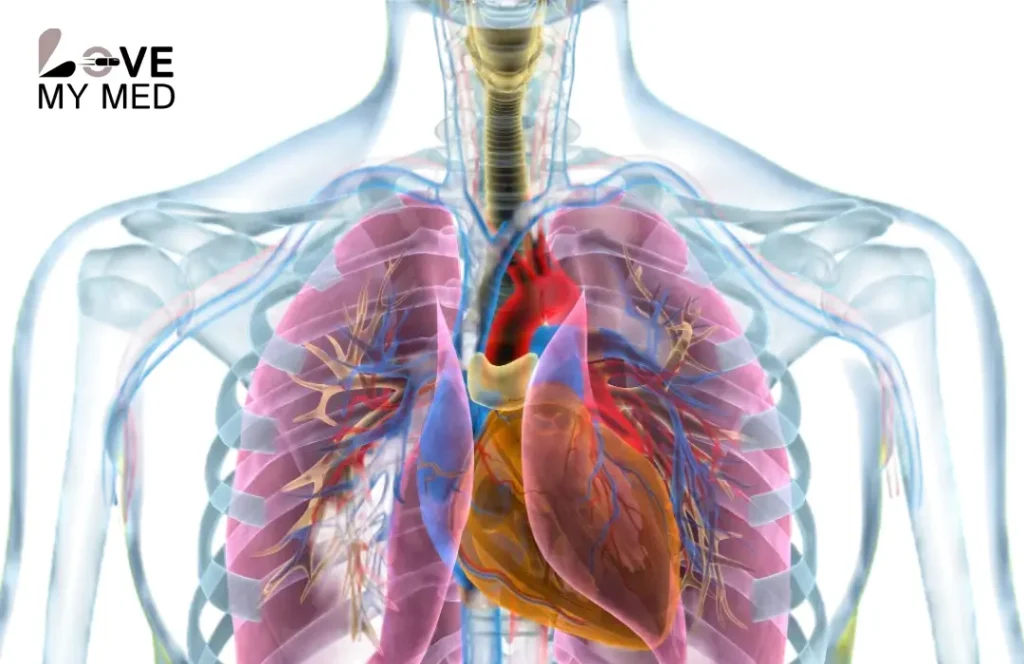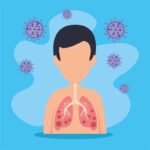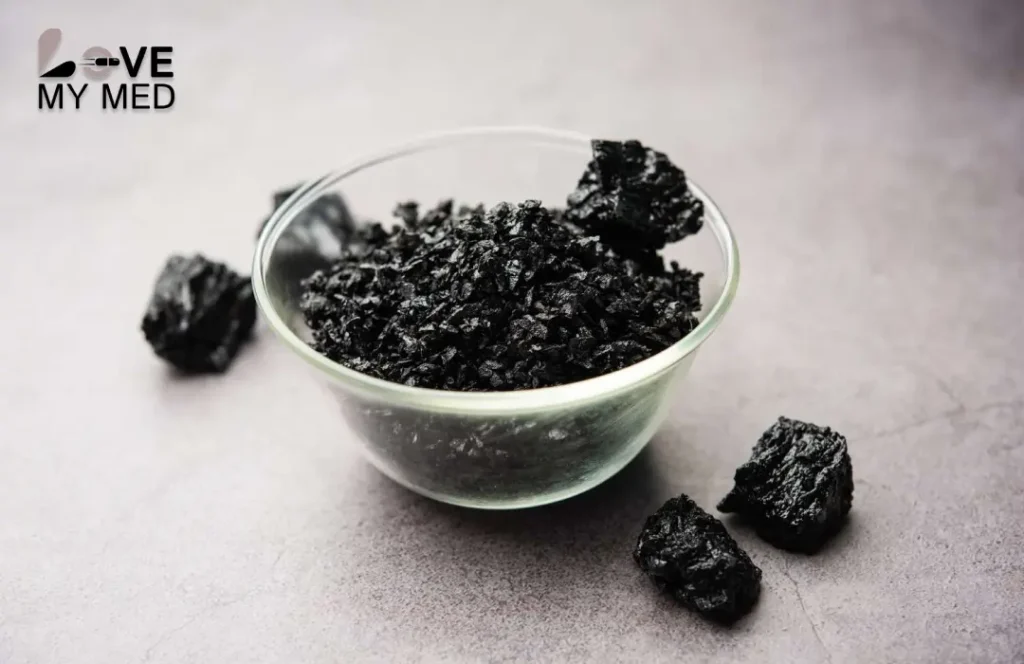How To Protect Your Lungs During Monsoon Season: Expert Tips

The monsoon season brings welcome relief from the summer heat but also poses challenges to respiratory health. High humidity levels, combined with dust, mold, and other allergens, can make you more vulnerable to infections and breathing difficulties. Conditions like asthma and bronchitis often worsen during this time, putting extra strain on the lungs. The damp environment promotes the growth of mold and bacteria, further increasing the risk of respiratory issues. To stay healthy, it’s important to adopt preventive measures and follow expert advice that can help protect your lungs. In this article, we will share practical tips to keep your respiratory system strong, ensuring you breathe easier and maintain overall well-being throughout the rainy season.
What the Monsoon is Going to do to Your Lungs: The Risks
Once the rains fall, the increasing humidity will turn the air and the environment into mold and mildew grounds, as well as an incubator of dust mites. Such pollutants are capable of irritating the respiratory system, resulting in allergies or infections. At this time, you need to be more careful to protect your lungs, or you may already have conditions such as asthma, chronic obstructive pulmonary disease (COPD), or other breathing problems.
Ordinary Lung Problems in the Monsoon
Exacerbations of COPD and Asthma
The asthma and COPD symptoms can become worse with the monsoon. A shift in air pressure, higher humidity, allergens such as mold or pollen, may cause asthma or aggravate the breathing issues of those with COPD. When you or the person you are close to experiences these conditions, it is critically important to remain especially mindful of taking steps to manage the symptoms during the season.
Rhinitis and sinusitis: allergic Reactions
Mold proliferation and airborne allergens (i.e, pollen) increase due to damp conditions during the monsoon. They may inflame the sinuses and can result in such conditions as allergic rhinitis (hay fever) and sinusitis. You easily forget about the sneezes, nasal stuffiness, and a runny nose, which are all indicators that your body is reacting to these allergens. It is essential to keep the air inside your house clean to decrease the exposure to these irritants.
Respiratory Infections
There is an increase in viral and worm infections during the monsoon. Moist and damp weather provides an ideal setting to allow the growth of pathogens, which may cause respiratory illness such as the common cold, influenza, or pneumonia. Whenever you experience chronic coughing, difficulty in breathing, or fever, see your doctor immediately.
Health/Fitness – Expert Tips to take care of your lungs in monsoons
Temperature, humidity, and ventilation: Ensure Indoor Air Quality
When it is the monsoon season, there may be a higher pollution rate inside your house than outside as the air gets humid. Best indoor air quality practices include:
- Air purifiers: The devices assist in getting rid of allergens and pollutants so that the air is clean.
- Drying out your house: Dehumidifiers will lower the level of moisture in the air, which blocks the formation of mold and mildew.
- Cleaning your house regularly: Clean the surfaces regularly to pump off dust and mold spores, which may be hiding in corners and damp areas.
- Stay Away from Pollutants: The rains may wash away dust, but they also trap pollutants closer to the ground. Avoid walking near heavy traffic or construction areas right after rainfall.
- Stay Hydrated: Hydration helps thin the mucus in your airways, making it easier for your lungs to clear irritants. Drink lukewarm water, herbal teas, or ginger-honey infusions to soothe your respiratory tract.
- Breathing Exercises: Practicing pranayama, deep breathing, or yoga can work wonders for your lungs. Exercises like Anulom-Vilom and Bhramari improve lung capacity and cleanse your respiratory system naturally.
Dry and Warm
Moisture is one of the primary causes that weakens the body’s defensive mechanism. Warm and dry up around you; by:
- Avoiding wet garments: Wet garments may make you get chilled and put you at risk of a respiratory health condition. Frequently Wet Clothing: Never wear wet clothing.
- Dressing warmly: Now this is on the premise that in wintry weather, lung infections are more likely to occur, so warm clothes can help to avoid this risk.
Take Breathing Exercises
Respiratory problems can be avoided by bolstering the lungs with breathing exercises. Methods such as pranayama ( breathing exercises in yoga ) or deep breathing exercises may:
- Increase lung performance.
- Trainers can increase the strength of the respiratory muscles.
- Assist with stress and worry, which are conditions that aggravate breathing problems.
You could devote some time every day to deep breathing exercises because they may prove useful to your lung health in the long run.
Lung-Friendly Foods
Diet would help keep the respiratory system good, too. Some foods enhance the health of the lungs during the monsoon. These include:
- Garlic: Garlic is an anti-inflammatory element that cleans the airways.
- Ginger: Ginger works to lessen inflammation in the airways and is also an expectorant to get rid of mucus.
- Fruits with Vitamin C: Oranges and lemons are very rich in vitamin C, which stimulates the immune system and counterattacks infections that may target the lungs.
When added to your diet, these foods will help your lungs and prevent inflammation and respiratory infections.
Stay Hydrated
Hydration keeps the body fluid and, in turn, lubricates thick mucus in the lungs, facilitating breathing. To prevent drying of the respiratory tract, drink warm liquids such as herbal or normal teas, soup, or just warm water. The mucus in the airways is dislodged, thus minimizing the chances of infection.
Medicines for Lung Problems in Monsoon
➡️ Strong lungs can greatly improve your overall health, and along with treating infections, medications like Mebendazole 500mg help protect your body from harmful parasites that can weaken the immune system.
➡️ Doctors often prescribe Albendazole 400 mg as an effective treatment to eliminate parasitic infections and improve overall health.
Indicators to See a Medical Expert
You should always seek the help of a specialist when you are not feeling well, and so come to seek medical attention when you get the following symptoms:
- Cough: When your cough does not subside in a couple of days, you may have an infection with coughing that requires treatment.
- Difficulty in breathing: It would indicate a severe condition of the lungs.
- Itching and tightness of the chest, or pain: This can symbolise asthma or other breathing complications, which should be addressed.
- Hyperthermia or exhaustion: These might be indicators of an infection that will need to be treated by a health care expert.
In case you suffer from a pre-existing condition, such as asthma or COPD, frequent check-ups in the monsoon are essential. Your physician can prescribe your medication to still deal with the symptoms during the wet season to some extent.
- Lifestyle Adjustments for Stronger Lungs
- Healthy lungs need more than just medicines.
- Exercise Indoors: Light workouts, yoga, or walking at home keep your lungs active.
- Stress Management: Stress weakens immunity. Practice meditation or mindfulness.
Quit Smoking & Reduce Alcohol: Both directly damage your lung tissues and worsen seasonal infections.
Parting Words: Take a Breath, Remain Healthy
There is a mix of preventing behaviours and staying healthy, which can help protect your lungs during the monsoon season. Keeping the indoor air in check, staying dry and warm, doing breathing exercises, eating the right foods, and always staying hydrated will make sure that your lungs are strong and not infected. Whenever wondering about the symptoms of respiratory distress, feel free to talk to a medical specialist in case of any risk signs detected.
Frequently Asked Questions (FAQs)
What is the effect of monsoon on the lungs?
The monsoon season upsurges humidity and aerial allergens, which may evoke a predisposition to respiratory conditions such as asthma, allergic rhinitis, and infections. The moist environment is a breeding ground for mould and bacteria, which can result in worsening of lung issues.
Do I Need to Exercise in this Monsoon Season?
Exercising outside is not recommended in cases of heavy rainfall since the humidity that this phenomenon produces makes it harder to breathe and worsens respiratory complications. Choose indoor activities that will aid in breaking down lung respiratory capacity, like yoga or Pilates.
Do Natural Medicines Exist to Enhance Lung Health?
Sure, respiratory training, taking pulmonary-friendly foods (Garlic and ginger), and lavatorial vapors are some of the natural remedies. These may aid in clearing the airways, lessening swelling, and increasing the effectiveness of the lungs.
What Can I Do To Keep Mold In Check Indoors?
Drying up indoor locations by maintaining dehumidification, ventilation, and cleaning of wet surfaces has been a way to stop the growth of molds. Do not keep clothes or towels in a wet state in one condition.
How can elderly people protect themselves during this season?
They should avoid damp spaces, eat immunity-boosting foods, and consult doctors promptly if they experience breathing issues.





